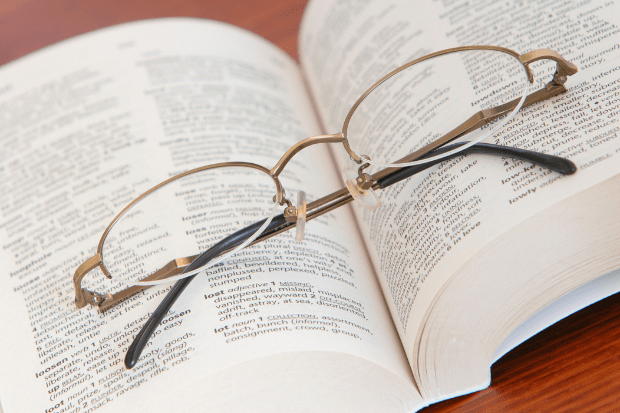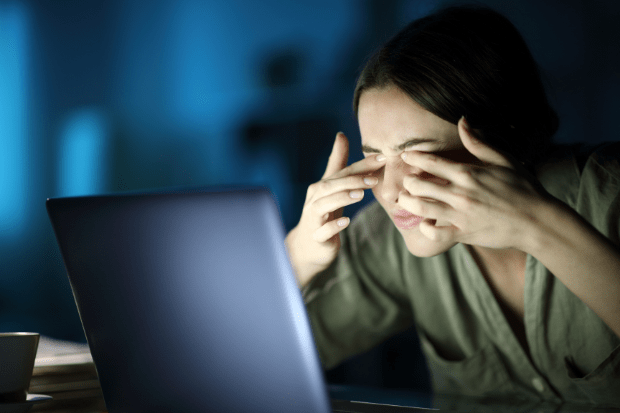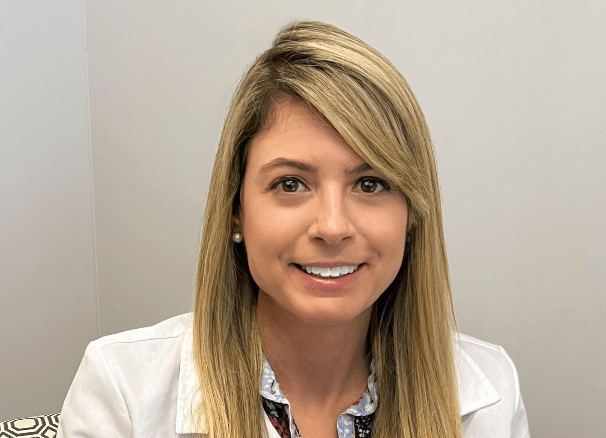How to Know if You Need Glasses

Many eye symptoms and signs may indicate you need glasses. The most frequent include blurry vision, headaches, and eye fatigue. With hours upon hours of digital device use, even those who have 20/20 vision may benefit from glasses. Glasses may be prescribed to correct blurry vision but may also be recommended to make performing certain tasks easier for you. Schedule an appointment with your eye doctor to confirm if a pair of glasses may be beneficial for you. We will discuss 7 common signs you may need glasses.
Signs You Might Need Glasses

Sign 1: Watery Eyes
Watery eyes can be a sign you may need glasses or can be an indication you have dry eyes or allergy eyes. An eye doctor can make the diagnosis by looking at the front of the eye, called the anterior segment, and performing a series of dry eye tests.
Sign 2: Blurry Vision
If objects appear blurry in the distance or up close, you most likely need glasses. Your doctor will ask you which of two choices appears better to determine the prescription of your eyes. This test is called a refraction and when the two choices appear the same to the patient, the test is complete.
Sign 3: Eye Fatigue
If your eyes feel tired as the day progresses, they may be working too hard to see things clearly. Often patients with farsightedness will experience this symptom. Fatigue occurs because the muscles of the eye are accommodating or focusing all day to keep images in focus, whether the patient is working on the computer or staring at the road while driving. This is similar to the idea of lifting weights, if performed all day, your arm muscles will be fatigued.
Sign 4: Headaches
Headaches don’t always indicate you need glasses, but they are one of the most common signs. The eye is now considered an extension of the brain. Vision-related headaches may be frontal, around or behind the eyes. They usually occur after hours of computer work, but may present upon waking.
Sign 5: Night Driving
Difficulty with night driving may be an indication you need glasses. Oncoming lights may cause debilitating glare, light sensitivity and night blindness. Small amounts of nearsightedness, astigmatism, and larger pupils at night are often the cause. An anti-reflective coating applied to a pair of glasses will also minimize the effects of car lights.
Sign 6: Double Vision
Many patients with astigmatism describe the images they are seeing as double vision. Astigmatism results in one image with a blurred, smear image off to the side. True double vision is one image with a second image next to it and may indicate misalignment of the muscles or a more serious condition of the brain. If you are experiencing a new case of double vision, you should see an eye doctor immediately.
Eye Problems That Require Glasses
Astigmatism, nearsightedness (myopia), farsightedness (hyperopia), and presbyopia are common eye problems called refractive errors that require glasses. The first three eye problems can be diagnosed at any age, whereas presbyopia usually occurs after the age of 40. All four of these conditions can be corrected with glasses or contacts. Genetic and environmental factors may cause one to develop a refractive error.
Presbyopia
Presbyopia is a condition of the muscles and lens inside the eye which often occurs on or after the age of 40. You will slowly lose your ability to accommodate or focus up close because of changes in the elasticity of the lens. The lens stops focusing light correctly on the retina. No matter what we do, everyone will experience presbyopia and will need glasses for near work and reading.
Nearsightedness
Nearsightedness, also called myopia, is a condition where the eye is longer from front to back than a normal eye. When the light enters the eye, it falls in front of the retina, resulting in blurry distance vision. A prescription for minus lenses is written to correct the distance blur. If you have difficulty reading street signs or sports scores on the tv, you may have myopia.
Farsightedness
Farsightedness, also called hyperopia, is a condition where the eye is shorter from front to back than a normal eye. The shorter eye length causes the light entering the eye to hit behind the retina, resulting in blurry near vision, and even blurry distance vision if you have a high amount of hyperopia. A prescription for plus lenses is written to correct the near blur. Farsightedness may be described by your doctor as the eye is having to work too hard, and glasses are needed to relax the eye and do the work that your eyes normally do daily.
Astigmatism
Astigmatism is a condition that occurs from a change in the shape of the lens or the cornea. Doctors commonly describe your eyes as being football or egg-shaped and the shape of the eye causes entering light rays to hit the retina at two different locations. As a result, when you look at car lights or small letters and numbers at all distances, the images look as if there is a halo effect, blur, or smear.
What To Do If You Need Glasses?
If you need glasses, you will receive a prescription from the doctor. An eyeglass prescription is similar to a prescription for medication. The numbers indicate the exact amount of prescription needed to correct your eye problem and should be ordered exactly the way the doctor prescribed it for you. The numeric values on a prescription are called diopters. Eyeglass lenses should be ordered with the numeric value on the prescription, a lens material, and a lens material type. Please see our guides for more information on ordering eyeglasses.
Conclusion
There are many signs that you may need eyeglasses. The most common are blurred vision, headaches, and eye fatigue. An eye doctor will look at your eyes and perform a test called refraction to determine your eyeglass prescription. This series of numbers indicates what type of eye problem is causing your symptoms. Your glasses should be ordered according to the specific numbers written by your doctor.
